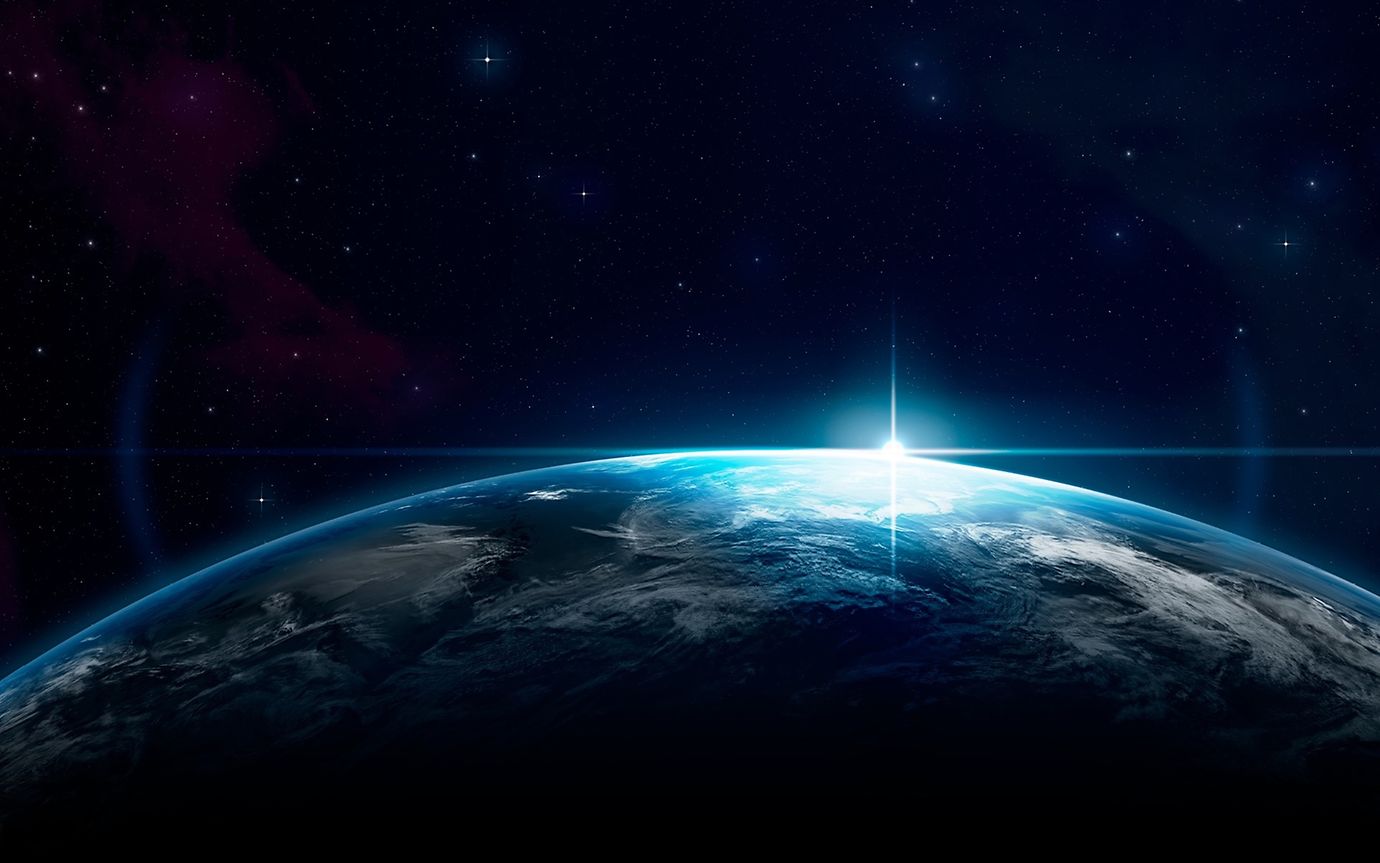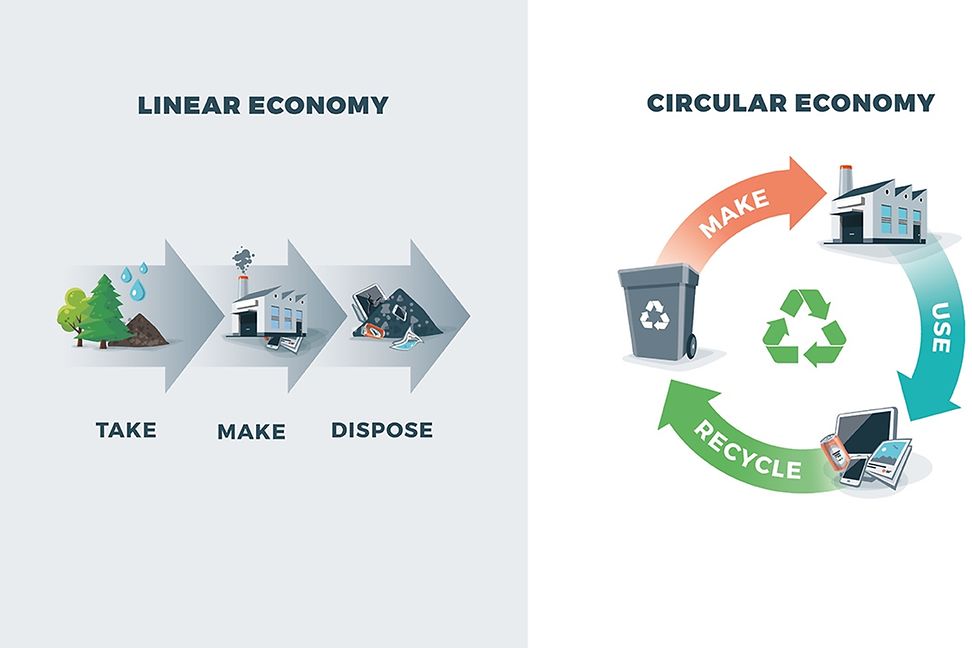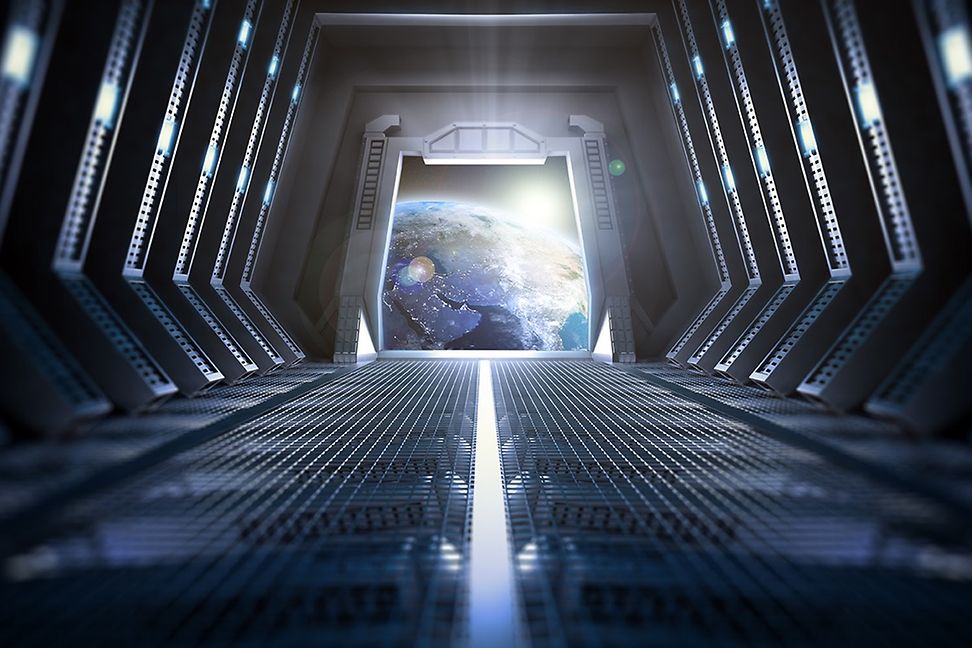- Home
-
Private banking
-
LGT career
The circular economy assumes finite rather than unlimited resources - and goes back to the "space economy" model. It is more relevant today than ever before.

The earth is a closed sphere. To illustrate this idea, the economist Kenneth Boulding coined the metaphor of the "spaceman economy" as early as 1966: in this economy, the earth becomes a single spaceship on which the supplies that the crew can tap or pollute are limited. In such an ecological system, we must find a way to ensure the continuous reproduction of natural resources and materials.

Contrary to an economic model that understands resources as infinitely available, consumption and production for our daily demands should be minimized in the "spaceman economy". Thus, the concept of the circular economy came into being, and is defined as an economy that is restorative and regenerative by intention and design. The value of products, materials and resources is to be preserved as long as possible and the amount of waste should be minimized. In addition, the consumption of finite natural resources should gradually be reduced. The key principles of a circular economy are thus to reduce consumption of natural resources, and reuse materials before recycling them.

The nature of global challenges we are facing today, such as resource scarcity and climate change, underlines the benefits of shifting from the current linear economy - produce, use, dispose - to a circular economy. Furthermore, a circular economy aims to redefine growth, focusing on positive society-wide merits: waste and pollution are to be reduced and the scarcity of resources, boosted by increasing demand due to population growth and economic developments, is to be mitigated. In addition, socially responsible and sustainable consumption patterns are to be fostered and eco-friendly innovation and technology are promoted to facilitate new circular business models. The European Union (EU) estimates that the transition to a circular economy can add 0.5% to GDP growth by 2030 and create 700 000 new jobs.

The "European Green Deal" comprises a number of political initiatives and is one element of the fiscal stimulus package adopted by the European Commission to alleviate the consequences of the corona pandemic. The overall goal is to make the union climate-neutral by 2050, which includes measures and investments in resource efficiency and a clean and circular economy. As an integral part of the Green Deal, the "Circular Economy Action Plan" aims to reduce and reuse materials before recycling them, with a focus on resource-intensive sectors. The action plan focuses primarily on electronic goods, textiles, plastics and construction. It highlights the need for the "right to repair" of electronic goods and calls for mandatory requirements on the recyclability of plastics, with particular attention to the labeling of bio-based and biodegradable plastics. In addition, the plan requires a new textile strategy that promotes the reuse of textiles as well as a strategy for a sustainable environment, with potential revision of material recovery targets.
At present, only 12% of secondary materials and resources in the EU are returned to the economy after use. Hence, there is huge growth potential for companies offering products and services that benefit from the transition to a circular economy. For example, the EU "Circular Economy Action Plan" reiterates that by 2030 all packaging on the EU market must be reusable or recyclable in an economically viable way. Also, waste management and recycling companies play a vital role in ensuring that waste is disposed of professionally and in the most environmentally friendly way possible, and in reducing the need for raw materials. As the circular economy topic relates to many supply chains and production processes, we aim to provide a balanced investment selection covering various sectors.
LGT has been a pioneer in sustainable and impact investing. By investing sustainably, you have the opportunity to unite returns and impact.